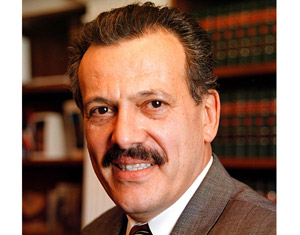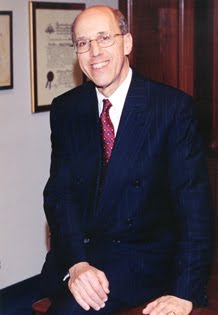You just don’t often see a city’s top lawyer get shot down so hard and so fast as we did here in New York this week. Shortly after writing a column for the New York Law Journal on inefficiencies in the court system, an appellate court struck the city’s answer in a case they were defending. The court’s extraordinary action was taken due to a decade of delay by the city’s law department in furnishing documents to the plaintiff. This was followed by a blistering letter in the paper from two of this town’s top personal injury attorneys regarding more inefficiencies by the city.
It started Monday, December 7th, when city Corporation Counsel Michael Cardozo published his version of a “Top 10” list related to court reform. The column focused its attention on our underpaid judiciary, lambasting them with a screed focusing on a lack of efficiency from the bench with respect to motions and trials. He suggested performance goals for the judges, focused on delayed decision making, more status reports from the judges, more evaluations of judges and moving judges to understaffed parts.
Response was swift, perhaps swifter than he ever imagined, and is an instant classic with respect to throwing stones from a glass house.
Just one day later, the Appellate Division Second Department decided Byam v. City of New York, lambasting Cardozo’s office in a false arrest and malicious prosecution case for failing to produce records that were first requested in 1997. The court, in reviewing the numerous attempts to get the documents, finally struck the answer of the city as all other sanctions would have been insufficient, saying that their “willful and contumacious conduct can be inferred from their repeated failures, over an extended period of time, to comply with the discovery orders, together with the inadequate, inconsistent, and unsupported excuses for those failures to disclose.”
And Cardozo was trying to call the judiciary inefficient?
That was followed yesterday, December 10th, with a letter in the New York Law Journal that eviscerated Cardozo and his office. The letter, by Marc Dittenhoefer and Helene Blank (both well-known and well-respected among bench and bar) is reprinted here with their permission, in its entirety.
While one may believe that Dittenhofer and Blank have taken great risks by having this letter published, given the substantial amount of work they do where the city is the defendant and the risk of pay-back from that office, I agree with them that such inefficiencies must be disclosed. The idea of the city’s top lawyer throwing stones at the judiciary while he can’t clean up his own house is one that can not be ignored.
———————————————

As attorneys practicing in the courts for over 30 years, we were eager to read what Michael Cardozo, our three-term Corporation Counsel had to say about the courts because, after all, one of the biggest problems we encounter on a regular basis is dealing with the Corporation Counsel’s office on almost every case in which the city is involved. We are not alone in our experiences. The court system and all litigants — plaintiffs or defendants, petitioners or respondents — have to regularly deal with the inefficient office. That is not to say that many of the women and men who toil there are not doing an excellent job, but the bureaucracy of the office
is designed to hamper, delay, sidetrack and stop the smooth and efficient progress of any lawsuit in which the city is involved. Instead, what we read was no less than a thinly veiled assault on our hard working judges and another plea for “merit selection” over election.
Mr. Cardozo would prefer that his boss have the ability to appoint all the members of the bench who will then preside over the cases that he litigates. Fortunately, that is unlikely to happen. The U.S. Supreme Court has spoken and no matter how imperfect our system is, it is in our minds preferable to one person selecting the man or woman who will ultimately decide a client’s fate.
We have seen both the good and bad in both systems and no one who practices daily in our courts believes that merit selection is only done on the merits. We were disappointed that Mr. Cardozo didn’t take the time to inform the bench and the bar of what changes he is going to make in his third term to improve his own house. Because no matter how he views Office of Court Administration, at the beginning and end of the day the elected judges are accountable to the people who elected them, but his office is accountable directly to him. We speak from experience as plaintiff’s attorneys, defendant’s attorneys and court appointed fiduciaries. Ask any judge how easy it is to get the city to comply with a court order.
While without question there have been great strides at the city’s law department to operate more efficiently, it is still impossible to obtain even the most prosaic information from the city’s counsel in the course of legitimate litigation including the names of city contractors who are responsible to both the plaintiff and the city, due to the deliberate, arcane and byzantine methods it uses to catalogue same, apparently designed to frustrate identification and retrieval.
The inordinate delay caused by the city’s presence in a case prompts plaintiff’s counsel to do anything to avoid having to sue the city, which might very well have been the plan in the first instance. Yet, however satisfying such a misdirection might be to the winning hand, such is hardly the proper way for a city to treat its citizenry. And this is not yet to mention the eve of trial witness revelations that happen constantly.
Perhaps Mr. Cardozo, who in his article talks about removing matters from the courts, can explain why the city will not participate as a litigant in mediation let alone arbitration. Is there a 60-day reporting system for his attorneys? Are they being held accountable for failing to comply with court orders and for the repercussions that follow? Are his attorneys being evaluated on their performances? Or does he just accept as we are told to accept that the volume of cases, lack of sufficient staffing and budgetary constraints make it impossible to be better than they are?
We were offended by Mr. Cardozo’s article, offended for the judges who confront unmanageable caseloads, insufficient staffing, unreal expectations from OCA and Mr. Cardozo, and who suffer from low morale because they haven’t had a pay increase in more than a decade.
We were also offended because the article was written by the three-term Corporation Counsel whose own house needs serious re-ordering. Since Mr. Cardozo has the ability to impact the way his office operates, we sincerely hope his third term is spent getting his own office better prepared. Perhaps if that’s done, just once, when a litigant asks for the information to which s/he is entitled, they can get it so they might avoid litigation and not have to sue the city to keep the statute of limitations from running out. That would be a great thing to accomplish indeed.
Helene E. Blank
Marc M. Dittenhoefer
—————————
Full disclosure: I know both Blank and Dittenhoefer and frequently litigate against the city’s Corporation Counsel.


